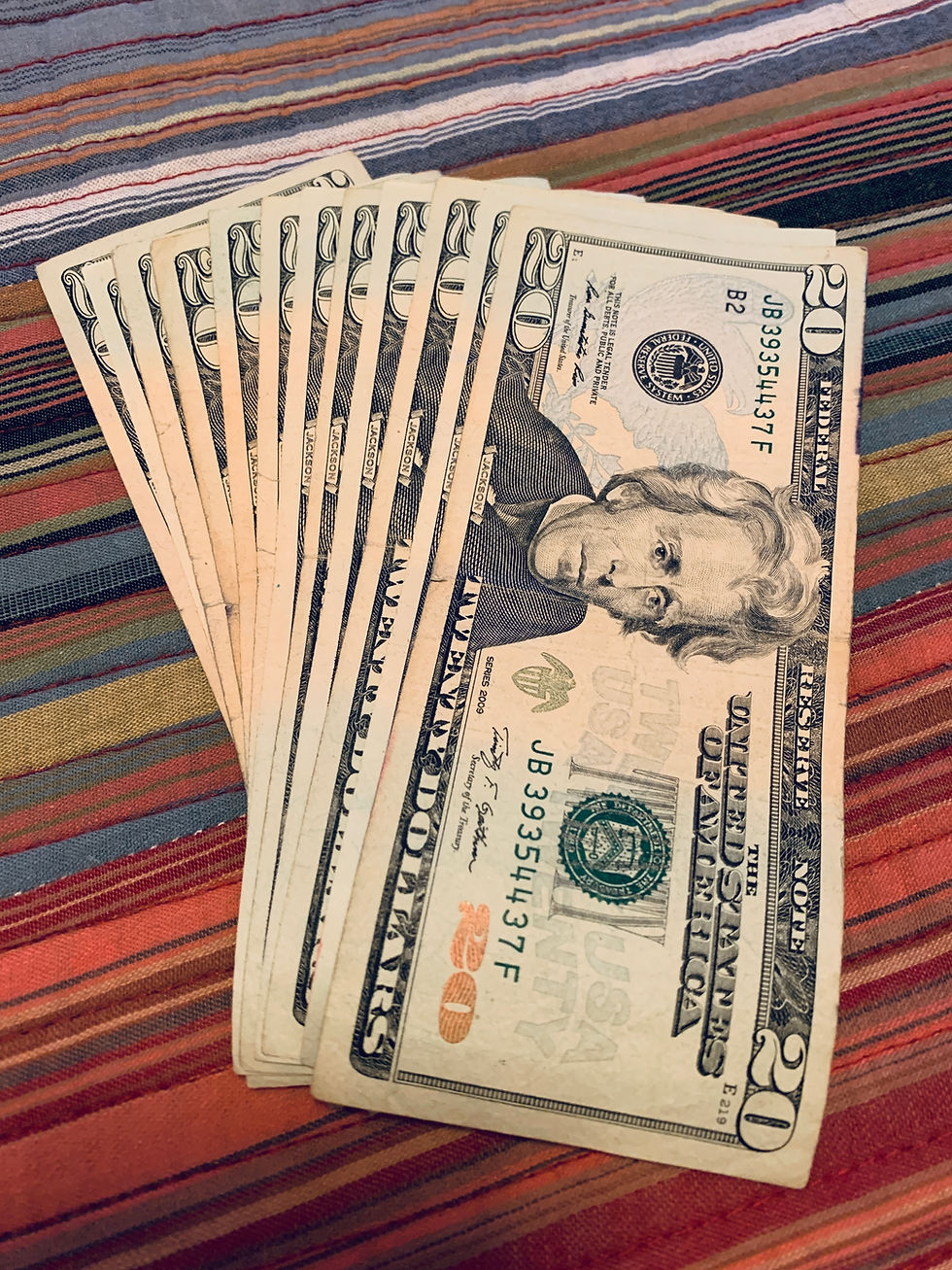Money Lessons from The Nuance Artists
- Kim Heil
.jpg/v1/fill/w_320,h_320/file.jpg)
- Mar 7, 2021
- 3 min read

I've been listening to artists talk about money for 10 months now - more if you count my conversations with friends and colleagues off IG - and a few money lessons have repeatedly emerged from those interviews. They're going to sound familiar to most people, but here's what's so great about these short nuggets of financial wisdom: they're both specific to artists, and applicable to a wider, non-arts field. In other words, they can work for anyone! But most importantly, they are indispensable for those wanting to purse careers in the arts.
So...here goes!
1. SAVE YOUR MONEY. This is not new. NONE OF THIS IS NEW. But let me reiterate some of the reasons why the artists on The Nuance have adopted this practice as a regular habit:
Arts careers, especially in the beginning, are gig careers. That is to say, if you are just starting out you are most likely going to work sporadically. Once you've established yourself as a good worker and professional asset to those who are hiring, then jobs may come more consistently.
Arts careers are notorious for not paying well. There are folks actively trying to change this reality, but until society values the arts for their immeasurable contributions (I realize there's a contradiction in that phrase), you need to be prepared for low, and often inequitable, pay.
Life in this world is mostly unpredictable, and the only consistent thing in life is change. Enough said. See: COVID-19.
There are a lot of people on the front lines trying to improve various components of arts industries, including increased pay and opportunity, etc. But that could take years, and until then, you are best served by putting away 5-10% of everything you make. Create a new savings account for this purpose. Aim to have at least 1 month of bare-bones living expenses in that account, and DO NOT TOUCH IT. Eventually, try to build it to 6-12 months of living expenses. Once you have that cushion you will be AMAZED at how much stress that can relieve.
2. DON'T HATE ON THE DAY JOB. If you've listened to any of my interviews, you'll note that EVERYONE had to hold down a day job or several day jobs for various lengths of time, because their respective careers didn't pay them enough to cover their living expenses. Eventually, many of them were able to transition into pursuing their artistic endeavors full-time, and some of them even evolved their "daytime" calling into a separate career. The bottom line is: it is absolutely okay to have a day job. Don't let the need for a day job fool you into believing that you're not a true artist.
3. KEEP YOUR EXPENSES LOW. There are many ways to keep your expenses low - everyone from health insurance to groceries to hair cuts - and usually all it takes is a simple Google search to find all the deals and methods you need to know. But the larger issue that most of us need to deal with is the "keeping up with the Joneses" mentality, which is definitely something to examine, if not question. One good guiding question for any non-essential purchase is: How does this item/service augment or improve my life? Ultimately, though, you just have to be willing to self-interrogate about why certain expenses are necessary. Personally, I've found that meditation and therapy have helped with this....as well as a great chat with a close friend!
As I've said before, these lessons are not new...but I cannot emphasize them enough. And, to wrap this up, here's something else to keep in mind - it is never too late to start taking care of your finances. Whether you're 15 or 45, starting now can do your life a world of good. So do yourself and your art a favor, and start implementing these money lessons in your daily practice!

Comments